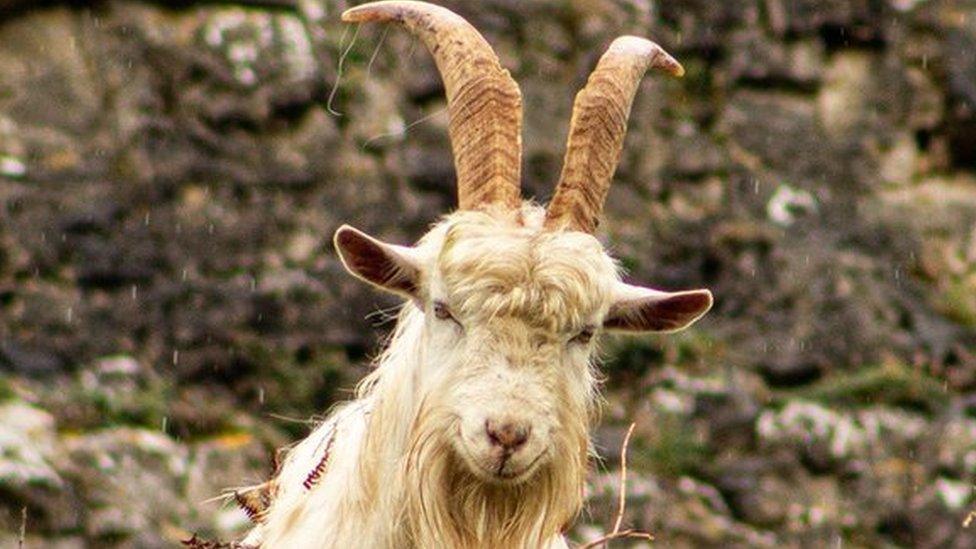Llanberis mountain goats devour beauty spot gardens
- Published
The goats have been causing chaos in gardens
Wild goats are destroying gardens and damaging homes, according to residents who live next to ancient woodland in a Welsh beauty spot.
They have called for action to control the number of animals grazing in Padarn Country Park above Llanberis in Gwynedd.
There are now more than 50 animals in the herd, despite a cull in 2006.
Officials said they were examining "long-term and sustainable" approaches to the problem.
"They are very fond of roses and very good at getting over any defences one can put up," said retired teacher Jim Chatterton.
He lives in the tiny village of Dinorwig, below the former slate quarries where the mountain goats spend much of the day.
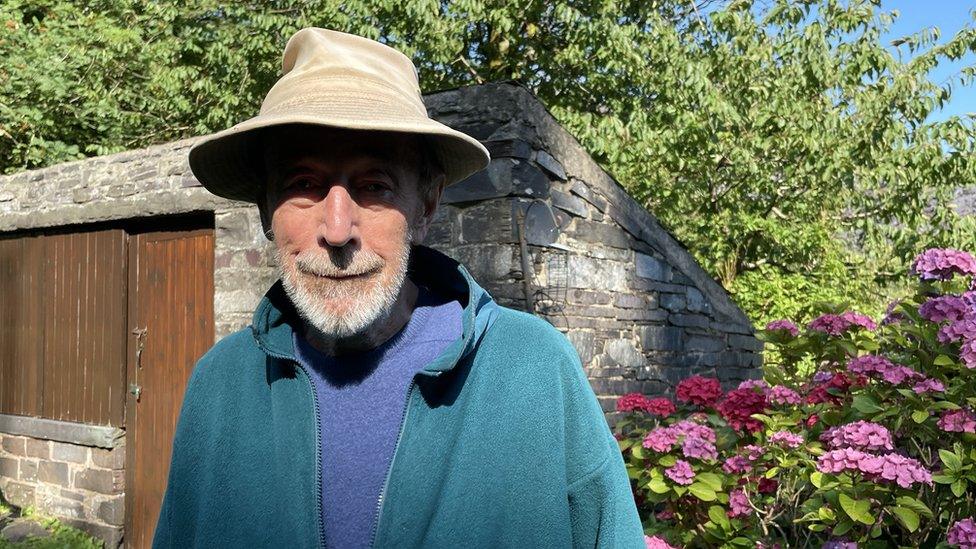
The goats have eaten all Jim Chatterton's roses and smashed slate tiles on his home
They descend to forage in the 325 hectares (800 acres) of oak woodland below, more often than not stopping off at gardens on the way - and not just gardens.
"I had to have the whole back of the house re-slated for that reason," said Mr Chatterton.
"Goats dancing on the roof."
The traditional Welsh slates were broken and dislodged by goats leaping on to the low roof of the property, and have now been replaced with unbreakable tiles.
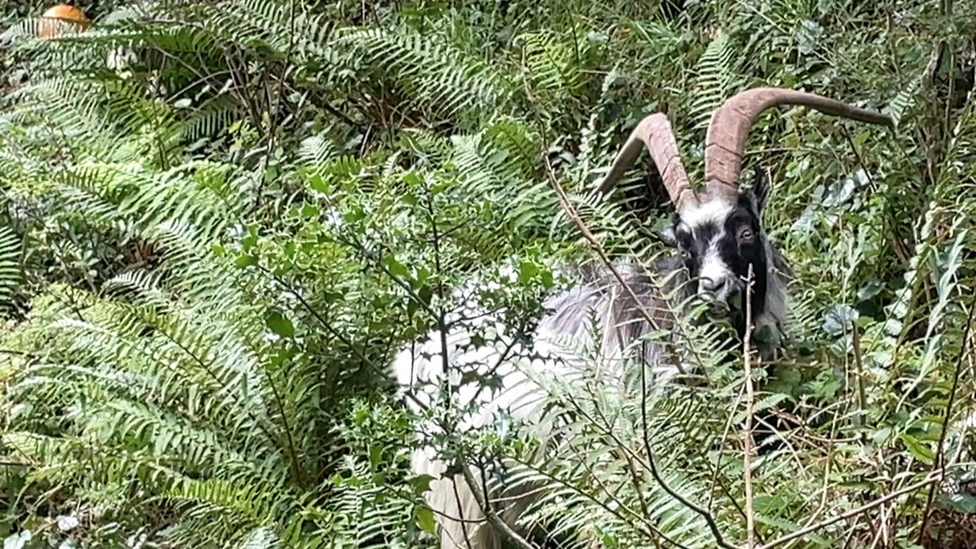
Just one of the goats making a lunch stop in the garden of Dinorwig resident Dr Stel Farrar
Next-door neighbour Dr Stel Farrar said the goats were becoming an increasing nuisance in the Dyffryn Peris area, on the edge of the Eryri national park, also known as Snowdonia.
"The little ones are quite cute, aren't they? But when you get about 60 big billy goats trampling over your garden and taking absolutely everything - the roses, everything - of course it impacts on you," she said.
"They break down all the walls, they took all my apple trees when I first moved here."
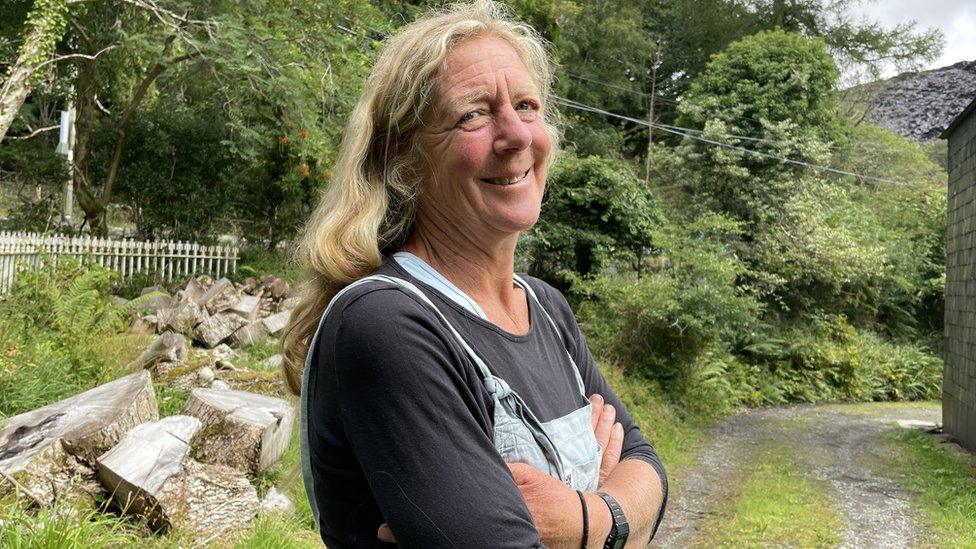
Dr Stel Farrar says the goats eat everything in her garden
"It's not just a matter of putting up a little fence, you'd have to have thousands and thousands of pounds to keep them out of your garden. It's a big problem."
Another resident said she had just had to replace a car headlamp after a goat's horn went through the glass, while another found a goat had fallen through a skylight in an outbuilding, and then smashed through another window to escape.
The residents said they were also concerned for the park woodland, which they feared was being devoured by hungry goats.
"It's a very rare special woodland, and it is threatened by these goats," added the plant biologist, Dr Farrar.
"The oak trees there are very old ones, and you do see before the goats come along the little oak seedlings, but they never get further than that."
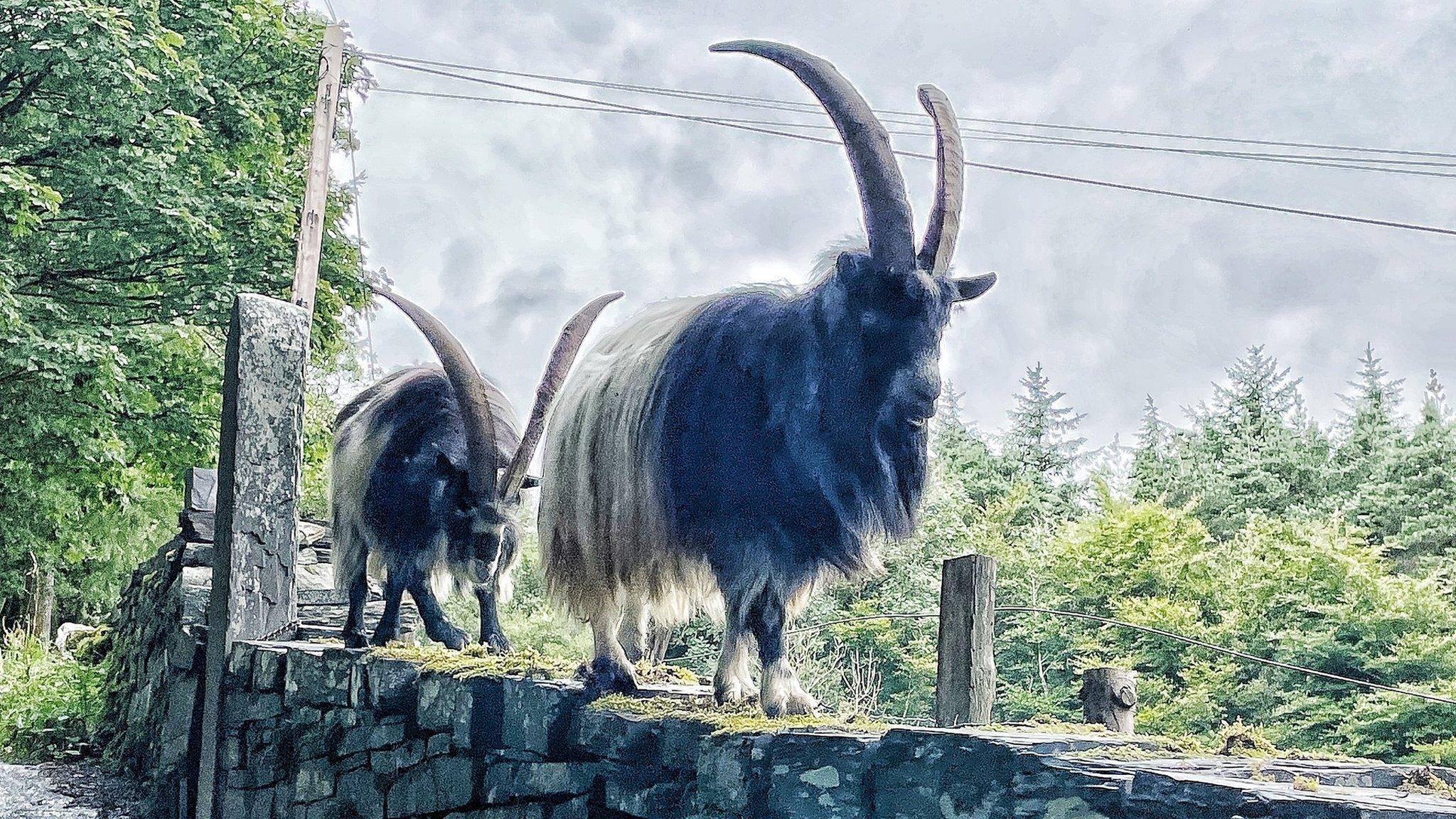
There are now well over 50 goats in the herd grazing in the country park woodland
The Dinorwig woodland has been a listed site of special scientific interest (SSSI) since the 1960s, partly because of the type of oak that grows on the slate hillside, known as sessile oak - where acorns grow directly on twigs, without a stem.
However, Natural Resources Wales said it had carried out some small-scale monitoring in the woods, and found there was "currently a low impact on the SSSI features resulting from the goats".
"However, this could change if conditions such as a severe winter led the goats into the less hostile woodland environment resulting in increased grazing impact," added an official from the environmental body.
A cull of most of the animals was carried out by marksmen back in 2006 as part of a wider programme to control feral goat numbers across the county.
In other parts of Wales, including the Great Orme goats on Llandudno, contraceptives have been used to prevent the goat herds breeding.
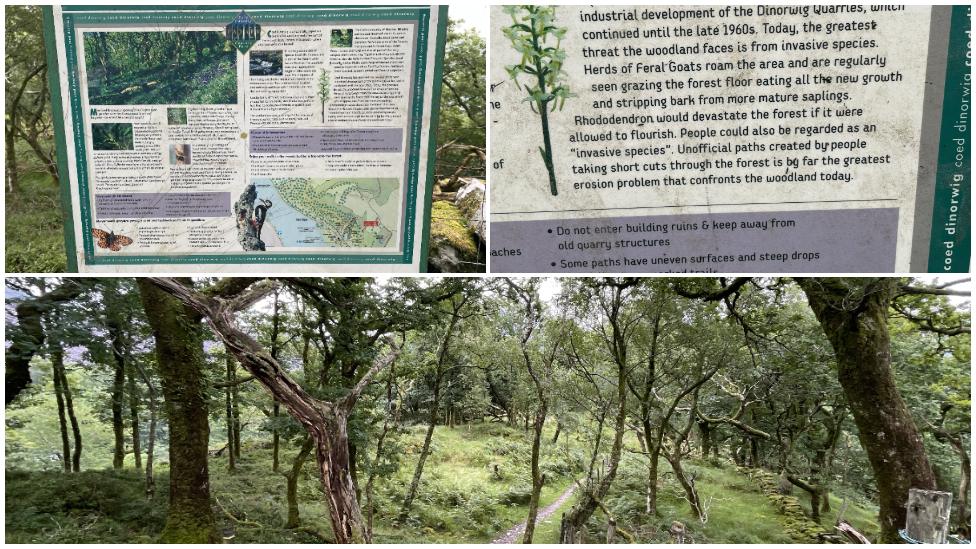
Signs in Coed Dinorwig highlight the potential threat posed by the feral goats
The local council, Cyngor Gwynedd, which manages the country park, said it was aware of the concerns being raised by those in the communities.
"As a council we are working with our partners, which includes Natural Resources Wales and Eryri National Park, to find a long term and sustainable solution to feral goat grazing in Dyffryn Peris," said a council officer.
"Feral goats, such as the ones found throughout the Dyffryn Peris area, are also found in many other areas within Gwynedd."

YR WYDDFA: Life on Britain's busiest mountain
HOLLYWOOD OR BUST: How Wrexham AFC became a global sensation

- Published5 July 2023
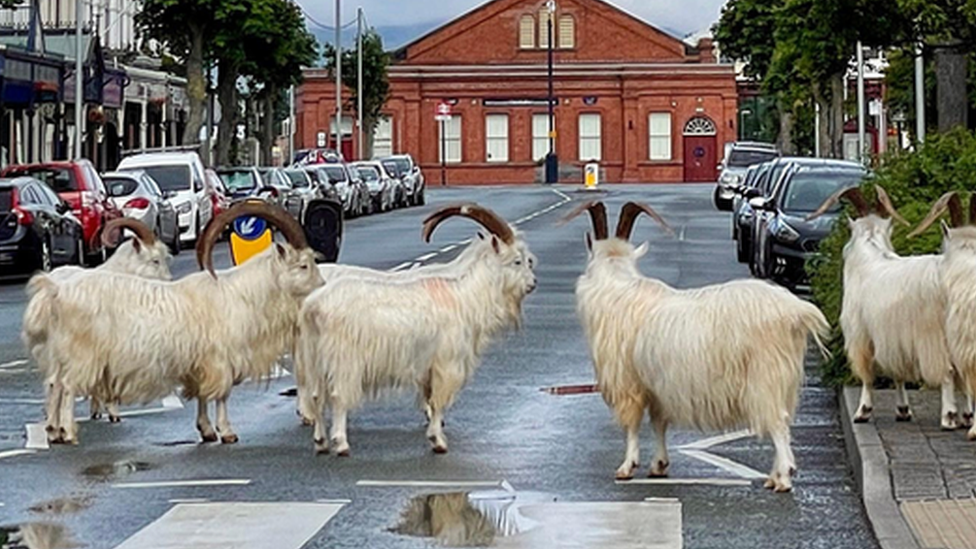
- Published18 April 2023
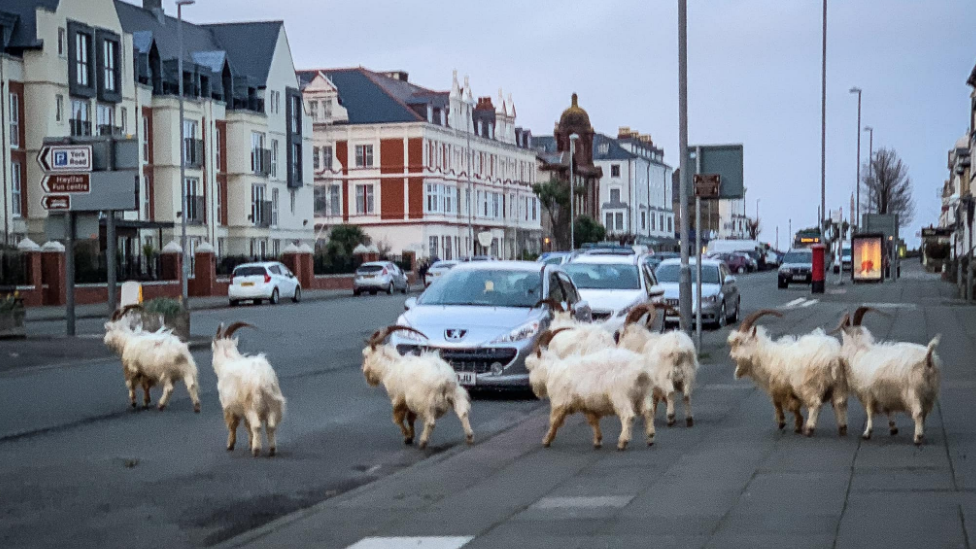
- Published21 June 2022
